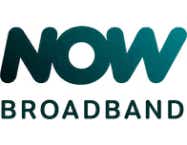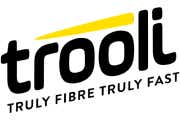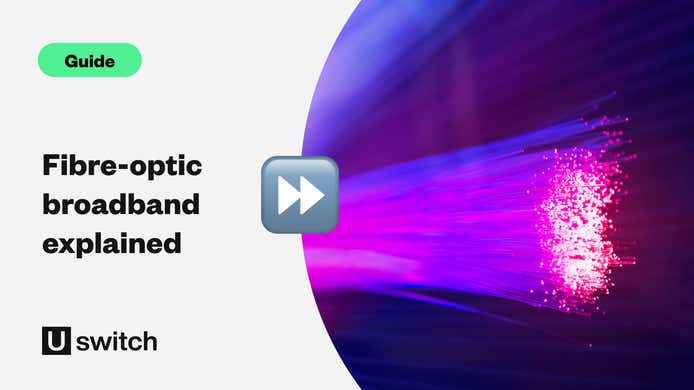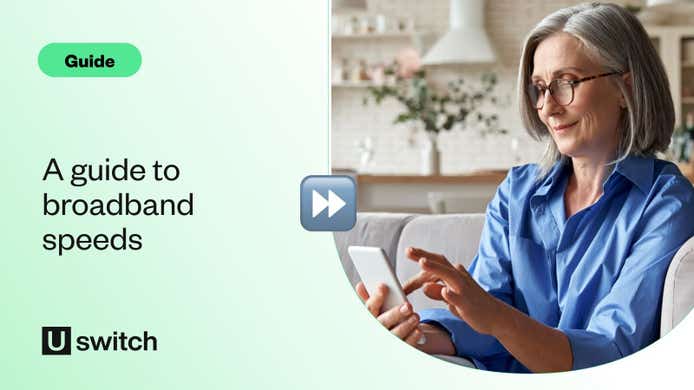If you’re a heavy broadband user, live in a large household, or live in a large household of heavy broadband users, some of the more standard broadband packages just won’t be sufficient.
In order to keep everyone at home happy and to make sure your connected devices run smoothly, you’ll need to look for some of the fastest broadband speeds available in your area.
If you plan to use your broadband for gaming, sending large files, and streaming 4K content on multiple devices, you’ll need faster broadband than a standard ADSL package, or potentially even some of the slower fibre connections.
What's the fastest broadband in the UK?
The fastest broadband you can get might not necessarily be the fastest broadband available on the market. It might not even be the fastest broadband your next-door neighbour can get.
It all depends on what cables you have connected to your property. Here’s a quick breakdown of the speeds each type of broadband is capable of.
- Traditional copper telephone cables only: ADSL broadband (10-11Mbps)
- Fibre cables to your local cabinet: Fibre broadband (30-80Mbps)
- Fibre cables connected directly to your home: Full fibre broadband (100-1,000+ Mbps)
- Coaxial cables connecting your home to your local cabinet (with Virgin Media): Cable broadband (100-1000Mbps)
If you’re not sure what types of broadband are available where you live, you can check to see what the fastest broadband in your area is with our postcode checker.
Depending on the infrastructure in your area, you’ll likely have a range of broadband packages that fit within a range of speeds, each with similar but slightly different names.
What is ultrafast broadband?
Ultrafast broadband is generally considered any broadband connection that supplies 100Mbps or faster.
Several broadband providers use the term ‘ultrafast broadband’ to refer to their top-end broadband packages. However, providers use different technologies to deliver their broadband services to your home, and as a result, the speeds they can offer also differ significantly.
The telecoms regulator Ofcom defines ultrafast as “broadband which offers download speeds of at least 300 Mbps”. However, some providers that use the ultrafast broadband term don’t offer those speeds.
It can sound confusing, but the general rule of thumb is that if a provider labels a package as ultrafast broadband, it’s one of the fastest packages they provide.
Compare 100Mbps broadband deals
Find broadband deals with 100Mbps speeds and faster in your area.
What is the difference between superfast and ultrafast broadband?
The main difference between superfast broadband and ultrafast broadband is the speeds they deliver. Superfast broadband is often used to describe broadband packages with speeds of anywhere between 30Mbps and 100Mbps. Ultrafast broadband, on the other hand, covers speeds ranging from 100Mbps up to 900Mbps.
Superfast speeds are delivered via fibre broadband, which still includes a certain amount of connection using copper wires to deliver broadband to your home. Ultrafast broadband uses a full fibre connection in most, but not all, cases.
Finally, superfast broadband is widely available across the country, with more than 97% of UK households able to access it. Ultrafast broadband is still comparatively limited in its availability, as connecting individual properties directly with a fibre connection takes time and investment. Ultrafast broadband is still only available to roughly 40% of UK households
Gfast, gigabit or ultrafast broadband
Once you get over 100Mbps, the terms for high-speed broadband tend to get a bit more inter-mingled, with terms like Gfast and gigabit being used as well as ultrafast broadband.
Gfast broadband involves Openreach attaching a special pod to your cabinet exchange, which allows it to supercharge the speed of the copper telephone wires to your property. This is easier to implement since the current cable doesn’t need to be replaced, and it can significantly improve your broadband speeds. But it’s only available in a small number of areas, so you’ll need to check if your property can access it.
Gigabit broadband delivers download speeds of 1Gbps, over ten times faster than superfast broadband. It’s only available to about 40% of UK properties right now, but it can be delivered via a full fibre broadband connection or one of Virgin Media’s specially adapted coaxial cables. You can get incredibly fast download speeds on both, but upload speeds via coaxial cables tend to peak at around 35Mbps.
What are types of broadband can I get?
Learn more about the different types of broadband - and their speeds - with our detailed guide.
What is ultrafast broadband good for?
There are a few reasons why you might need to get ultrafast broadband, but for the most part, superfast broadband speeds are plenty for most households. Read on to see whether you need to get ultrafast broadband.
1. Large households
If you live alone or with one other person, the demands on your broadband aren’t likely to be above superfast levels. Any task you perform online rarely requires more than 50Mbps of download speed at a time.
However, if you’re in a house of four or more people, each with high demands on your broadband, you’re likely to run out of available bandwidth fairly quickly.
If one teenager is gaming all day, and another is uploading large files, all while you’re trying to stream a movie in 4K, your broadband will struggle. Ultrafast broadband would mean that you never have to worry about sharing bandwidth.
2. Live streaming and online gaming
All the latest gaming consoles connect to the internet, either to download games and access features or to stream games online. The higher the quality of a game you play, the more bandwidth it will require.
If you’re a hardcore gamer and want to stream your gameplay to platforms like Twitch, then that will place even greater demands on your home broadband. If this is you then ultrafast broadband will be well worth the money.
Probably the most bandwidth-intensive online activity is game streaming or ‘cloud gaming’. This is where instead of downloading a game to your console and playing an online mode, the *entire* game is hosted somewhere else and streamed to your home, graphics and all.
It’s just like what Netflix does for TV shows and films, except that video games are much larger files and so require a lot more internet speed to work smoothly. You’ll need 35Mbps alone just to stream a game this way.
Our latest broadband statistics show that Virgin Media is the best internet service provider when it comes to both download and upload speeds, with speeds of 97.6% and 98.8%, respectively.
Check out our comprehensive guide to read more about the best broadband speeds for gaming.
3. Working from home
If you’re not planning to head back to the office or run your own business from home, then ultrafast broadband could be beneficial depending on the type of work you do.
If you work using lots of large files, regularly upload videos, have constant video calls, or do anything especially bandwidth-intensive, ultrafast broadband would be a good investment.
Read our guide, for more tips on how to get the most out of broadband when working from home.
4. More reliable broadband
Ultrafast broadband might seem like overkill for light internet use households, but the technology provided by full fibre makes your connection lot more reliable. So if you're tired of an inconsistent speed or constant outages, you may want to consider upgrading to ultrafast broadband.
A standard ultrafast package could be as affordable as £20-25 a month for speeds over 100Mbps. While you may not need those speeds all the time, a solid full fibre connection is also more reliable and will ensure the smooth running of however many new devices you connect to your home Wi-Fi in the future.
Ultrafast broadband providers in the UK
Most UK broadband providers offer a range of ultrafast broadband packages nowadays.
Here's a list of the providers who offer ultrafast broadband speeds of 100Mbps+ on Uswitch.
Compare our best broadband deals
Search on Uswitch to find the right broadband package for you.













